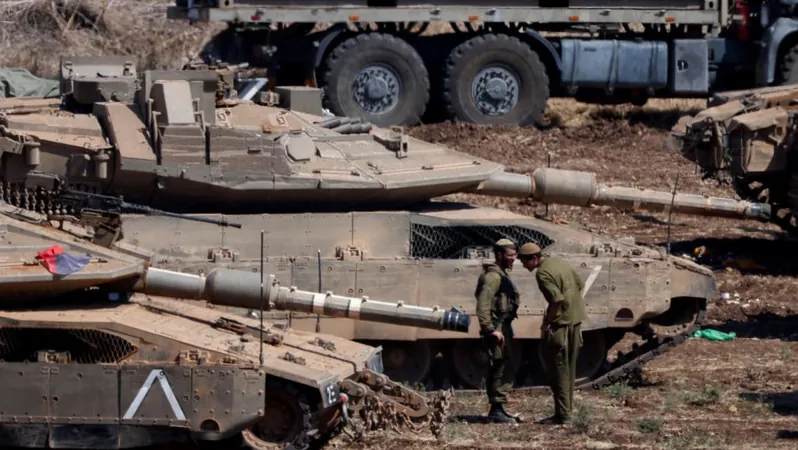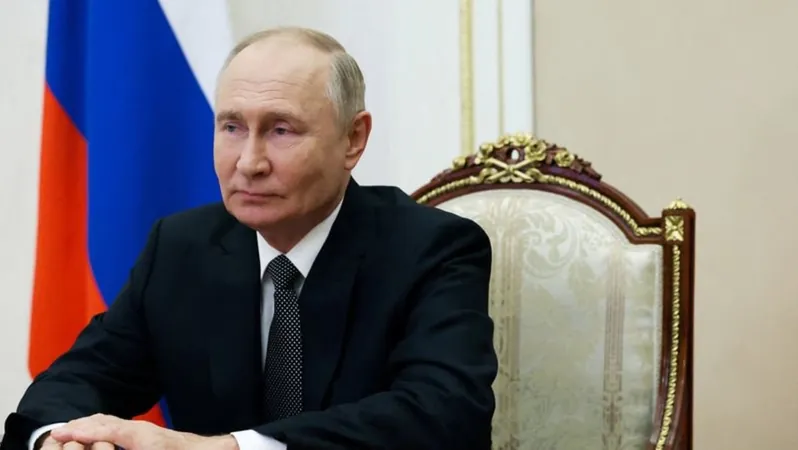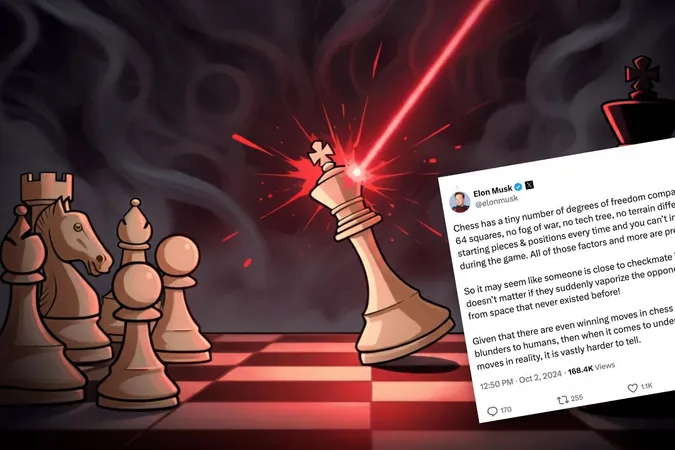
Escalating Tensions: Israel Intensifies Military Operations in Lebanon Following Iranian Missile Attack
2024-10-02
Author: Wei Ling
JERUSALEM/BEIRUT — In a significant escalation of hostilities in the region, Israel announced on Wednesday, October 2, that it is deploying regular infantry and armored units to bolster ground operations in southern Lebanon.
This move comes in the wake of a barrage of Iranian missile strikes that have heightened fears of a broader conflict enveloping the Middle East.
As Israel continues its military engagement with Hamas in Gaza, it is now diverting its attention to its northern border, confronting Hezbollah.
The latest developments raise serious concerns about the potential for a more extensive war involving multiple state and non-state actors in the region, particularly with Iran’s involvement.
The Israeli military confirmed that troops from the 36th Division, which includes elite units such as the Golani Brigade and the 188th Armored Brigade, have been activated.
This strategic pivot indicates that Israel's military actions may transition from limited commando raids to larger-scale ground operations aimed at dismantling Hezbollah's operational capabilities, specifically targeting tunnels and infrastructure along the border.
In a bold statement, Iranian officials declared that the missile assault on Israel, marking one of the largest military strikes against the nation, would cease unless provoked further.
Meanwhile, both Israel and the United States have committed to retaliatory actions, with Israeli sources hinting at potential strikes against Iranian oil production facilities and other crucial sites within Iran.
Despite international calls for a ceasefire from organizations such as the United Nations, the U.S., and the European Union, the violence between Israel and Hezbollah remains unabated.
Recent air raids by Israel targeted Beirut's southern suburbs, a known stronghold for Hezbollah, leading to widespread destruction and new evacuation orders in the area, which has seen a dramatic exodus of residents in light of ongoing military operations.
Tragically, the conflict has resulted in substantial loss of life, with nearly 1,900 casualties reported in Lebanon since the escalation began, most of them occurring in the last two weeks alone.
In a display of resistance, Hezbollah claimed to have engaged Israeli forces infiltrating the Lebanese town of Adaisseh, ultimately forcing them to retreat.
The group, supported by Iran, has claimed its actions are in retaliation for what it views as Israeli aggression in both Lebanon and Gaza.
As the situation develops, world leaders are expressing grave concerns. German Chancellor Olaf Scholz urged for an immediate cessation of hostilities from Iran and Hezbollah, warning of the potential for regional destabilization.
Japan has also stated its deep concern regarding the ongoing violence.
Iran's justification for its recent offensive lies in alleged Israeli attacks on its leaders and military assets.
Iranian Foreign Minister Abbas Araqchi emphasized that their military response was targeted at Israeli facilities and vowed a stronger reprisal should further provocations occur.
Israeli Prime Minister Benjamin Netanyahu has asserted that Iran will face severe repercussions for its provocations.
The United States has also positioned itself to support Israeli responses strongly, with Secretary of Defense Lloyd Austin assuring that U.S. military presence in the region remains a crucial deterrent against further Iranian aggression.
As tensions escalate, the stakes continue to rise, with all eyes on potential retaliatory measures and the global ramifications of further conflict in an already volatile region.
The Pentagon warns that the recent Iranian missile attacks represent a dangerous escalation, and both sides are on heightened alert, preparing for what could be a historic conflict.
Stay tuned as this story develops—will we see a full-blown war ignite in the Middle East?





 Brasil (PT)
Brasil (PT)
 Canada (EN)
Canada (EN)
 Chile (ES)
Chile (ES)
 España (ES)
España (ES)
 France (FR)
France (FR)
 Hong Kong (EN)
Hong Kong (EN)
 Italia (IT)
Italia (IT)
 日本 (JA)
日本 (JA)
 Magyarország (HU)
Magyarország (HU)
 Norge (NO)
Norge (NO)
 Polska (PL)
Polska (PL)
 Schweiz (DE)
Schweiz (DE)
 Singapore (EN)
Singapore (EN)
 Sverige (SV)
Sverige (SV)
 Suomi (FI)
Suomi (FI)
 Türkiye (TR)
Türkiye (TR)